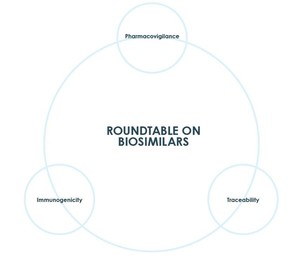Questions have arisen over whether the abbreviated pathway for approval of biosimilars in the US will ever be used. Many believe that biosimilars manufacturers will opt out of this pathway and use the normal route via a Biologic License Application (BLA). This is backed up by the fact that Teva’s biosimilar, Neutroval, was submitted to the FDA via the normal BLA route.
- INICIO
-
Genéricos
Novedades
- FDA approves generic teriparatide and levetiracetam
- US generics launch and approval for Dr Reddy’s and Lupin
- Five Chinese companies join UN’s MPP for Covid-19 medicines
- South Korean companies to make generic Bridion and COVID-19 drugs
Investigación
- Japan’s drug shortage crisis: challenges and policy solutions
- Saudi FDA drug approvals and GMP inspections: trend analysis
- Generic medications in the Lebanese community: understanding and public perception
- Community pharmacists’ understanding of generic and biosimilar drugs: Lebanon case study
General
- Crecimiento de medicamentos genéricos en Brasil y Venezuela
- EMA launches European shortages monitoring platform to tackle persistent medicine shortages
- Penetración de los medicamentos genéricos en México y Brasil
- FDA releases one-year progress report for the Generic Drug Cluster
-
Biosimilares
Novedades
- FDA approves Poherdy (first interchangeable pertuzumab) and Armlupeg (pegfilgrastim) biosimilars
- EMA recommends approval for insulin glargine biosimilar Ondibta and denosumab biosimilar Osqay
- FDA approves denosumab biosimilars Osvyrti and Jubereq, Boncresa and Oziltus
- FDA approves aflibercept biosimilar Eydenzelt and label expansion for adalimumab biosimilar Yuflyma
- MORE EDITORIAL SECTIONS
- Search








 0
0











Post your comment